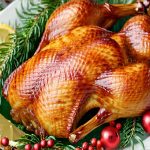The holiday season, with its abundance of festive foods and social gatherings, often leads to shifts in our eating patterns. It’s completely normal to indulge – that’s part of enjoying life! But after weeks (or even just days) of less-than-ideal dietary habits, many people experience digestive discomfort: bloating, gas, constipation, or simply a feeling of sluggishness. Similarly, occasional overeating or binge days happen; they are not moral failings but human experiences. The key isn’t to immediately jump into restrictive diets or feel guilt – it’s about gently guiding your gut back towards balance and restoring a sense of well-being. Recognizing that these periods are often inevitable and approaching recovery with kindness is the first step toward rebuilding a healthy relationship with food and your body.
This article will explore practical strategies for developing a gut-friendly routine following periods of dietary excess. We’ll focus on methods to soothe digestive upset, repopulate beneficial gut bacteria, and re-establish mindful eating habits—all without resorting to extreme measures or self-criticism. The goal isn’t about punishment but about proactive support for your digestive system and overall health. It’s about understanding that the gut is resilient and capable of bouncing back with a little thoughtful care and attention. We will provide actionable steps you can implement immediately, tailored to help you feel better physically and mentally after navigating periods of indulgence.
Re-Establishing Digestive Harmony
A sudden shift in diet can disrupt the delicate ecosystem within our gut. When we consistently consume rich, processed, or sugary foods, it can lead to an overgrowth of certain bacteria, potentially causing inflammation and digestive issues. The first step toward recovery is to ease your digestive system back into a more balanced state. This doesn’t mean deprivation; it means strategic choices that support digestion rather than overwhelm it. Think about providing your gut with the resources it needs to heal.
One of the most effective approaches is to temporarily adopt a “gut-healing” diet, focusing on easily digestible foods. This typically includes steamed vegetables, lean proteins (like fish or chicken), bone broth, and fermented foods in small quantities. Avoid overly processed foods, sugary drinks, excessive fats, and artificial sweeteners for a few days. Reducing fiber intake initially can also be helpful if you’re experiencing significant bloating; then gradually reintroduce it as your digestive system recovers. It’s about listening to your body and responding to its cues. If you are recovering from illness, consider developing a post-recovery diet to aid in the process.
Beyond food choices, hydration is crucial. Water helps move things along in the digestive tract and supports overall gut health. Aim for at least eight glasses of water per day, and consider incorporating herbal teas like ginger or peppermint, known for their soothing properties. Additionally, gentle movement – a walk, yoga, or light stretching – can stimulate digestion and reduce bloating. Avoid intense exercise immediately after overeating; allow your body time to focus on processing food. If you experience nausea after exercise, listen to your body and rest.
Prioritizing Probiotics & Prebiotics
The gut microbiome—the trillions of bacteria residing in our digestive tract—plays a vital role in overall health. Periods of dietary excess can disrupt this delicate balance, reducing the diversity and abundance of beneficial bacteria. Replenishing these good bacteria is essential for restoring digestive function and immune support. This is where probiotics and prebiotics come into play.
Probiotics are live microorganisms that, when consumed in adequate amounts, confer a health benefit to the host. You can obtain probiotics through fermented foods like yogurt (with live cultures), kefir, sauerkraut, kimchi, and kombucha. Alternatively, probiotic supplements can be considered, but it’s important to choose a high-quality supplement with diverse strains and CFUs (colony forming units). It’s also worth noting that the benefits of probiotics are strain-specific; what works for one person might not work for another.
Prebiotics, on the other hand, are non-digestible fibers that serve as food for beneficial gut bacteria. They help nourish and promote the growth of these microbes, leading to a healthier microbiome. Excellent sources of prebiotics include garlic, onions, leeks, asparagus, bananas (slightly green), oats, and apples. Incorporating prebiotic-rich foods into your diet alongside probiotic sources can create a synergistic effect, fostering a thriving gut ecosystem. Remember that adding fiber too quickly can exacerbate bloating; start with small amounts and gradually increase intake as tolerated. In times of digestive upset, you might benefit from restoring digestive balance to aid recovery.
Mindful Eating Reintegration
Often, overeating isn’t about the food itself but rather the emotional connection we have to it. Holiday stress, emotional events, or simply habitual eating patterns can contribute to a loss of mindful awareness around our food choices. Re-establishing mindful eating practices is therefore crucial for long-term gut health and overall well-being. It’s about breaking free from autopilot and reconnecting with your body’s hunger and fullness cues.
One effective technique is to practice slow eating. This involves taking smaller bites, chewing thoroughly, and savoring each mouthful. Put down your fork between bites and pay attention to the texture, flavor, and aroma of your food. This allows your brain time to register fullness signals, preventing overeating. Before you eat, take a few deep breaths and check in with yourself: are you truly hungry, or are you eating out of boredom, stress, or habit?
Furthermore, create a calming and distraction-free environment during mealtimes. Turn off the TV, put away your phone, and focus solely on your food. This helps you become more aware of your eating experience and reduces the likelihood of mindless consumption. Consider keeping a food journal to track not only what you eat but also how you feel before, during, and after meals. This can provide valuable insights into your emotional relationship with food and identify potential triggers for overeating. If you’ve experienced soft bowels after days of inconsistent eating habits, mindful reintegration is even more important.
The key takeaway is that rebuilding a gut-friendly routine isn’t about restriction or punishment; it’s about nurturing your body with kindness and attention. It requires patience, self-compassion, and a willingness to listen to your internal cues. By prioritizing digestive health, incorporating probiotics and prebiotics, and re-establishing mindful eating habits, you can restore balance and vitality after periods of dietary excess—and cultivate a healthier relationship with food for the long term. Remember, small changes consistently applied yield significant results over time. Focus on progress, not perfection, and celebrate your efforts along the way. You might also find it helpful to build a recovery plan after periods of significant digestive upset. Consider incorporating elements from a gut-friendly evening routine to support long-term health and wellbeing. If you are recovering from illness, reintroducing foods carefully is essential.


















